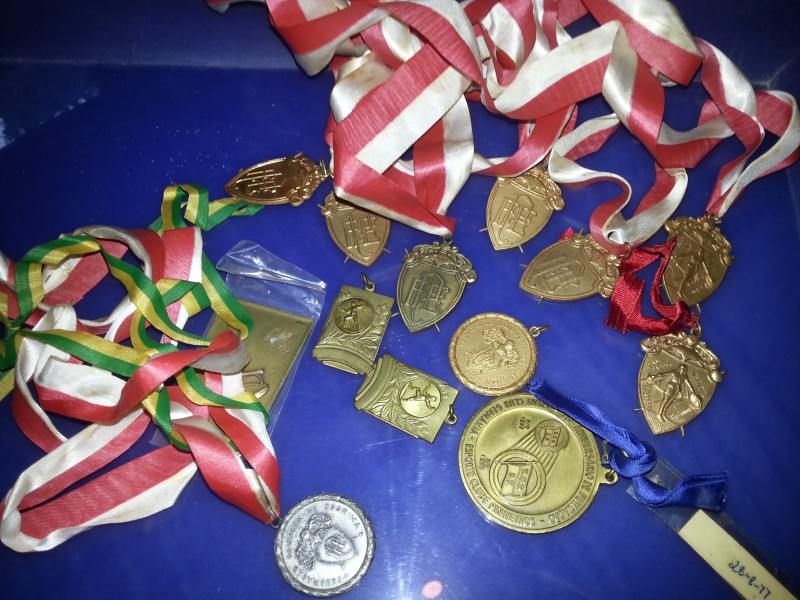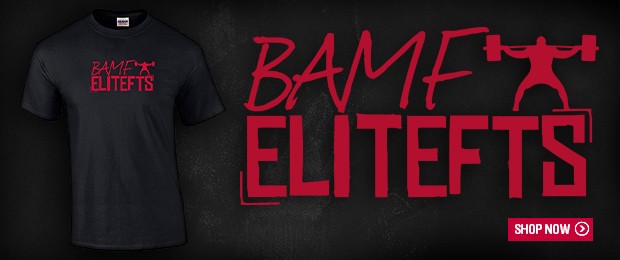

Introduction

"Back in the day" is a fascinating expression that exists, in one form or another, in all languages. It usually signals the beginning of a narrative about an idealized past. "Back in the day", my mother invented and made stuffed animals for me: kangaroos with babies in her pocket, a tadpole with a pink hat, a flowery rhinoceros made from some furniture remodeling fabric, or a paramecium with cilia made of wool. They were the best stuffed animals ever. "Back in the day", my grandmother played Beethoven's Moonlight Sonata just for me and nobody, ever, played it as well as she did in the whole world.
Francesco's: "'back in the day', Nonna made pasta from scratch and with her own hands. It was the best pasta I've ever had and there will never, ever, be pasta like that. One day she made sausage out of pork, veal, and lamb with duck fat: it was the best sausage in the world. There will never be sausage like that again."
There is a parable about this that I like very much. There are, of course, many versions of it. It is the parable of the King and the blueberry pancakes. "Once upon a time" (the mythological equivalent of "back in the day"), in a far, far away kingdom, there was a king and his son. At one time, the kingdom was attacked and the king, knowing his priority was to protect his son, fled. He took the young prince into the dark, dark forest where nobody could find them. They walked for days until they found, in the middle of the dark, dark forest, a house with smoke coming out of the chimney and a dim light they could see through the windows. Hungry and cold, they knocked on the door. An old lady, or the Wise Old Lady, opened the door and invited them in.
- You must be hungry. I will fix you some blueberry pancakes.
The king and the prince ate many pancakes and remained under the Wise Old Lady's care for some time. Eventually, they returned home and the kingdom was safe. The kingdom flourished, the king died of old age and the prince became the new king. The king was happy but felt a longing that he could not explain. Bored, he decided to hold a contest: the "perfect blueberry pancake" contest. He would taste all the pancakes and be the contest's only judge. The winner would be awarded a lot of gold. In some versions, he executed everybody but the winner (in my version he was less brutal). Pancake after pancake, the king rejected them all. By the end of the contest, when he was frustrated and angry, the Best Cook in all the Far, Far Away Kingdoms showed up. I should mention that he was also a Wise Old Man. The king was anxious: the Best Cook would certainly offer him the perfect blueberry pancake. The Best Cook, however, brought nothing. He just asked permission to speak.
- Your majesty, I brought no pancake and I would like to explain to you why you will never find the perfect blueberry pancake. Do you remember, long ago, when your father took you into the woods to protect you from danger and the Wise Old Lady invited you in? She fed you blueberry pancakes. Those are the perfect blueberry pancakes but they are in the woods, in the past, as gone as your father and the Wise Old Lady. All you have of them is your memory. Your memory, your majesty, is stored in a small ark made of pure gold. That gold is called Love. No blueberry pancake will ever come close the ones the Wise Old Lady fed to you while your father sacrificed everything to protect you, out of his love for you.
I don't remember the rest of the parable. In my version, the king rewards the Best Cook and is content with not chasing things from his memory.
Nostalgia, the yearning for an idealized past, or a retrospective idealization of lost objects, is universal. It can manifest itself by just sharing memories, by observing celebratory dates or, in extreme cases, by attempts (always unsuccessful) to recreate the past. In any way, the driving force of any nostalgic manifestation is emotion and it can come from anywhere.
"Back in the day" in the Strength Sports

Every nostalgic memory is a distortion. When older and young athletes refer to "back in the day" as that idealized past when people were better, stronger, more honorable, healthier, and tougher, they are expressing a filtered memory. How can that be possible if we have actual image and measurement records of this past? Because it is filtered.
More than in other sports, the strength sports have a consistent flow of nostalgic publications or podcasts. Men were stronger "back in the day". Things were more heroic "back in the day". Competition was better and fairer "back in the day". In Strongman, this goes to the point of some people seriously considering mythological accounts about feats of strength.
Modern Strongman pioneers such as Jón Páll Sigmarsson and Bill Kazmaier are remembered and revered. The fact is, though, that all feats of strength from the past were outdone in time.
Recently, History.com partnered with four professional Strongmen (Eddie Hall, Brian Shaw, Nick Best, and Robert Oberst) to challenge modern feats of strength and even legends - myths, perhaps. By the end of this show, spectators will probably be able to conclude that while amazing (real) men have walked the Earth, the strongest men are alive now, in the present.
Weightlifting has some great historians and commentators, such as Arthur Chidlovski. Fred Lowe also shares rich commentary about the history of American Olympic Weightlifting.
I have never read nostalgic claims about things being better "back in the day" from these sources. Nobody seems to miss the old iron plates because it was "tougher" to lift with them. They do write about great things to remember from "back in the day". It makes you wish you were there to have that memory to cherish.
Arm wrestling shares with Strongman a mythological origin and media boost in modern times. Movies like Game of Arms, Over the Top and Pulling John were popular.
Hall of fame and Golden Bear five-time winner Dave Hicks compared current arm wrestling with how it was "back in the day": "Training was all about building strength. The rest was in the mind. Nowadays we have a lot of interesting techniques. Just like in boxing, every action has a reaction. Nowadays you mostly have to use your head". According to him, the tables were not standardized, judging was different and he sees overall progress.
To be fair, actual complaints about how things were better (and braver, tougher, more real) "back in the day" are less common in Strongman, Arm Wrestling and Olympic Weightlifting. Most nostalgia comes from Powerlifting. There were incredibly strong men in the 1970s and 1980s. Even stronger men lift on modern platforms. Some of the claims concerning the superiority of powerlifting back in the day can be summarized in:
- Men were stronger.
- Training was better.
- Men were tougher.
- Competition was fairer / there was less cheating.
- Competition was better (the best lifters actually lifted against each other).
- Simple was better (less personal gear, fewer classes, less sanctioning bodies).
- Strength gyms were scary, brutal and selected the best by a baptism of fire. Until this day, posters and t-shirts celebrate how Powerlifting has been "proudly scaring gym members for 40 years".
Except for the fifth item, where there is fact-checking to be done, the others are either wrong or impossible to prove or falsify. Ken Leistner, who has been chronicling powerlifting's early days for years, has offered evidence of this more than once. When there was just one sanctioning body, the best lifters of each class would be seen on the platforms of both the US Nationals and the World Championship.
Whether this was better is not a measurable claim. Today, most elite lifters are competing against numbers. They are still competing against each other chasing those numbers but it is a competition that takes place in the abstract space of ranking. In reality, they are lifting in different places, at different dates and may never see each other in "real life".
Training was definitely not better. Powerlifting was a smaller sport than it is today and less of a concern for sports scientists. Advances in training are made through advances in knowledge and there is more knowledge now than in the past.
The third and the seventh items, which refer to the culture of brutality and "toughness", don't hold water. What improves a sport (or a science, or an art) is the growth of the talent (and gene) pool to screen for. Not all the pressure and bullying in the world can beat simple and basic selection: there are more people to select from and sure enough, the strongest, the fastest and the biggest keep being revealed.
As for cheating, I don't think anybody will write about that. Conversations with old-timers, when they are honest, show me that there was as much cheating then as there is now.
The Good, the Bad and the Ugly

I learned how to lift at a slum - a real one, where drug-dealers rule. Most of the kids didn't have enough to eat. The "ethos" of powerlifting in Latin America then was exactly what nostalgic powerlifters say about "back in the day" in the USA: terrifying, scary, brutal and tough. Except it was not: there was a set of ritualized behaviors that protected the members of the group. They had a rudimentary understanding about risks and they knew that in non-lifting environments bad accidents could happen. Power cages (racks) were rare and benches with safety support, non-existent. All they could count on was each other. That was good and beautiful. Unfortunately, in several places (in the world), it evolved into intolerance and contempt for "outsiders": the cult mentality.
"Back in the day", I saw altercations and power play, which I strongly reject. Nothing good can come from this kind of conflict. Those altercations frequently led to the introduction of federation wars when there wasn't any, and they came to stay. I don't miss those days.
I don't miss the days when people came to me with absolutely no knowledge of basic principles of nutrition: high performance is risky enough for us to make it lethal with bad nutrition and even worse pharmacology.
Early days strength athletes were not stronger, faster or more powerful than present competitors. If that was true, the strength sports would be aberrations in human performance. In every aspect of human performance, there has been an improvement. Records were broken. Athletes are taller, bigger and more whatever-it-is-that-gives-them-advantage. The talent screening pool grows and, with that, the number of exceptional individuals competing against each other grows, too.
There were a lot of heroic, revolutionary and ground-breaking things "back in the day". But people were not stronger, bigger or faster. Equipment was not better. Safety was not greater. Most of all, there was far less knowledge.
Studies about nostalgia suggest that the idealized past from nostalgic accounts comes from both positive (positive affect experienced in the past) and negative (a negative present situation that suggests degradation of places, relationships and things) emotions. Many of the actual "back in the day" accounts in the strength sports come from former athletes who are critical of the present situation in their sport. They remember "back in the day" when they were awarded a medal in the podium and the proud look from their coach or their parents. They remember training with their best friend, the same with whom they washed down, and then away, the pain of a lost love with beer. They remember the pranks, their friends' mothers' food, the day they got hurt and their team took them to the hospital. They filter out the cheating, the pain, the deaths, and the permanent resentment. They filter the unsafe conditions, the mistakes, the absence of important rules to prevent disasters, the absurd food myths that they adopted and which probably contributed to their diabetes and hypertension of today. Several younger nostalgic strength athletes long to belong to a mythical past that never existed because they don't fit anywhere else.
We can look at small sports communities as "local societies" or "local cultures" as if they lived in a different country. They live in Strongmanland, Powerliftingland, Armwrestlingland or Weightliftingland. Or we can try to understand each one of us as an immigrant into the unknown land of the "other", the "other" frequently being the grown-ups. There will be a lot of nostalgia. Nostalgia is not good or bad in itself. As with so many things, it depends on what we do with it. It is especially dangerous when someone's nostalgia is appropriated by someone else. Think about someone's grandparents who came from a small village in Germany long ago. One day, grandfather dies and grandmother misses him so badly that she spirals down the depressive path. She only speaks of the golden days back in XIXth century rural Germany. The grandchildren pick up on that and assume that "back in the day" things were much better. Except they were not: their grandparents immigrated because famine and disease had already killed half of their village. Things were horrible "back in the day". Nostalgia can take you back to where you never were, in the first place.
Do I miss things in sport? Of course, I do, like everybody. I was an open class world champion in the major powerlifting federations many times (with so many federations, you can become world champion dozens of times every year) and I topped the ranking in my class for several consecutive years. I broke federation world records and an all-time world record. I threw away all the trophies and medals I won. But I became a powerlifter at age 42, too old and rational, and immediately exposed to the disgusting things that happened behind the curtain. Those trophies and medals meant nothing to me. Powerlifting was not my first sport or love, though. Long ago I was a fencer – a good one. I keep the tiny medals I won in fencing as a child and teenager like I keep the pearls my parents gave to me or the nativity scene I inherited from my grandmother. They represent love, family, happiness, and comradery. Master Angelo Pio Buonafina (our coach) was a second father to me, his wife, a mother, his son, a big brother. The other fencers were a brotherhood of kids and I learned the basics of merit, loyalty, and discipleship there as much as at home. Three decades later I learned what went on all this time behind the curtain in fencing: it hurts. I'm happy I didn't get to see any of that. I'm happy I was overprotected by my big brothers. I'm happy I had a coach-father with words to live by, almost as much as those from my own father. But, oh, I know the perfect blueberry pancake only exists in the little golden ark of my memory, which I cherish with all my heart.

My fencing medals from 1975-1978. They are about the size of a quarter or slightly bigger.










